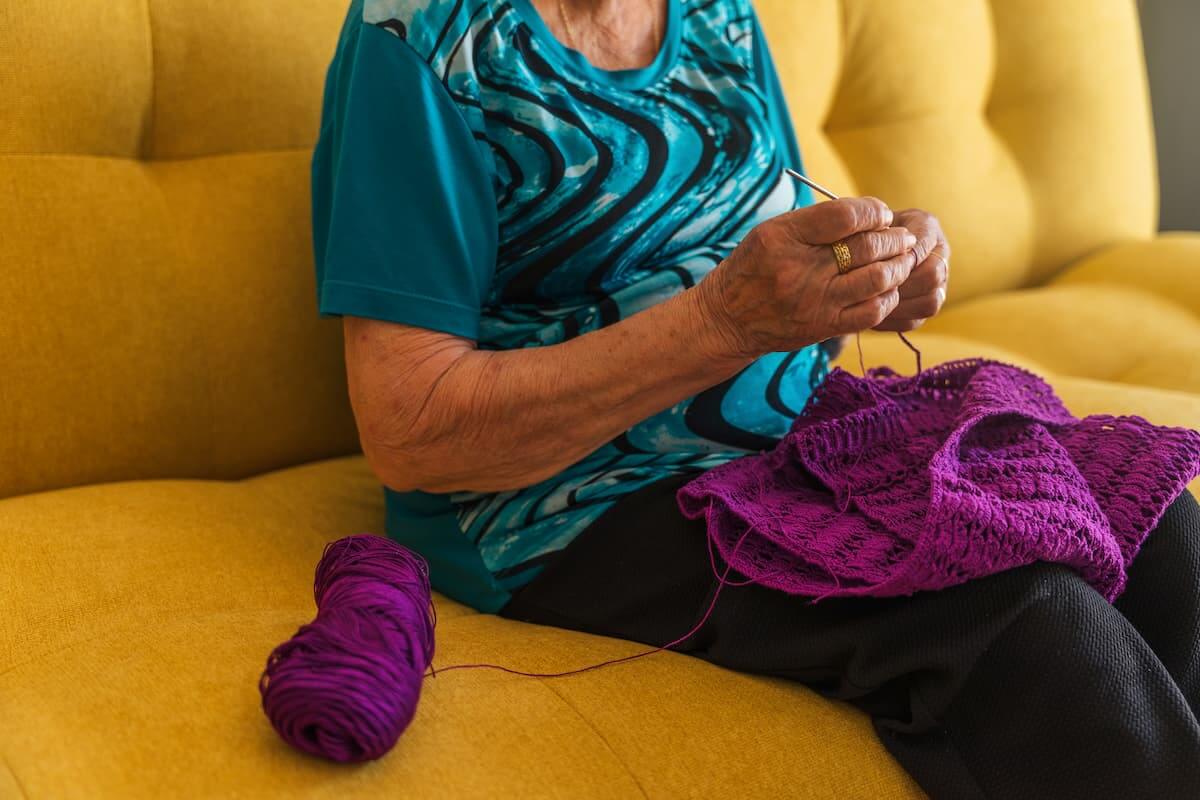Aging brings a host of life changes that can reshape daily routines and priorities. For many, the shift from a full-time job and structured schedule to the open-ended freedom of retirement is significant. However, it’s not just the schedule adjustments that affect seniors—health changes often accompany this stage of life as well. Senior health care is one of the most critical concerns for aging adults, but there are meaningful ways to improve health outcomes beyond doctor visits. Prioritizing a good quality of life can significantly enhance overall health and well-being. With the right approach, seniors can embrace this chapter, making the most of senior living and enjoying a fulfilling, vibrant lifestyle.
Why is Quality of Life Important?
Physical, mental, social, emotional, and spiritual health are deeply intertwined with one’s quality of life. Cultivating a positive outlook can elevate mood and memory, boost energy, foster meaningful social connections, and promote overall health and spiritual wellness. When individuals feel their lives are on a positive trajectory, they are often happier and more content. Conversely, a lack of fulfillment can lead to increased stress, depression, and apathy.
For seniors, maintaining an optimistic mindset and staying actively engaged can open the door to the many possibilities that come with aging. With a lifetime of experience and wisdom, this phase provides an opportunity to relax while sharing valuable insights and values with others. By taking intentional steps to build a fulfilling senior lifestyle, individuals can achieve a stronger sense of well-being and enjoy a vibrant, purposeful life.

Create a Sense of Purpose
Many seniors experience a sense of diminished purpose as they age. Without the responsibilities of a career or raising children, they may feel uncertain about how to fill their free time. However, engaging in meaningful activities can help restore a sense of purpose and fulfillment. These activities might include:
- Caring for a pet
- Tending to a garden
- Volunteering in the community
- Spending time with grandchildren
- Supporting a charitable cause (like crocheting blankets for local hospitals)
- Learning something new such as a language or activity that can be fulfilling
Engaging in these activities offers seniors a sense of accomplishment and gives them something to anticipate each day or week. Witnessing the results of their efforts—whether it’s watching plants thrive, seeing grandchildren grow and learn, or knowing that their creations benefit others—reinforces their sense of purpose. The desire to contribute and make an impact is a fundamental part of human nature, and it’s crucial to ensure seniors feel valued and important.
In addition to fostering purpose, having daily or weekly tasks provides structure and routine, which are essential for mental stimulation. This is particularly beneficial for individuals living with Alzheimer’s disease or other forms of dementia, as repetition can offer a sense of familiarity and comfort, creating a calming and supportive environment.
Promote Mental Health
Poor quality of life can take a toll on mental health, but mental health can also affect a senior’s quality of life. 1% – 5% of older adults living in the general community struggle with major depression, as well as 11.5% of older adults who are hospitalized and 13.5% of older adults who require home health care. However, there are ways to prevent and treat this condition to live a more robust and fulfilling life. In addition to counseling and medication, reducing loneliness and isolation can help combat depression.
Seniors may struggle with depression due to:
- Loss of a spouse, loved one, or friend
- Changes in mobility
- Changes in health
- Living alone
Common signs of depression include:
- Feelings of hopelessness or helplessness
- Loss of interest in previously enjoyable activities
- Withdrawing from others
- Fatigue or lethargy
- Sleep problems
- Changes in appetite (overeating or appetite loss)
It is important that residents stay engaged with family, friends, and peers through regular conversation, outings, meals, and activities. Strategies include:
- Scheduling regular times to talk, whether in person, on the phone, or via video call.
- Planning activities such as lunch or dinner dates, a movie trip, a museum visit, or an afternoon at the park.
- Join community groups related to reading, art, music, fitness, or other hobbies.
Help residents find activities they enjoy and encourage them to try new things. Finding others with similar interests is a great way to make new friends. Teaching them how to use technology for video calling, texting, social media, or email can be beneficial as well.
Structuring senior living communities so that individuals have areas to convene, socialize, and interact is important. Whether sitting outside in a courtyard or indoors in a sitting room or café, create spaces that encourage people to come together and talk, play games, or share meals.
Maintain an Active Senior Lifestyle
Physical activity is a powerful way to enhance both physical and emotional well-being. Exercise releases endorphins that elevate mood and supports improved mobility, enabling seniors to maintain the independence they value most in senior living. The top senior living communities offer fitness programs specifically designed for older adults, helping them safely strengthen muscles, improve balance and coordination, boost endurance, and support cardiovascular health.
Incorporating variety into workout routines helps keep seniors engaged and motivated. Some excellent options include:
- Walking
- Swimming
- Yoga
- Pilates
- Aerobics
Encourage Mental Stimulation in Senior Living
In addition to physical activity, older adults benefit from mental stimulation as well. More than 6 million Americans are living with Alzheimer’s disease, and this does not include other forms of dementia. Keeping seniors mentally engaged can help improve their memory and cognitive abilities. Daily activities that can promote a sharper mind include:
- Sudoku puzzles
- Crossword puzzles
- Word puzzles
- Jigsaw puzzles
- Brain games
- Board games or card games
- Drawing or painting
- Playing a musical instrument
These tasks challenge different parts of the brain and encourage critical thinking, problem-solving, fine motor skills, recall, and much more. Switch things up to strengthen a variety of cognitive skills. Everyday activities like creating a grocery list, preparing a meal, or balancing a checkbook can be easy to create and surprisingly beneficial.
Recalling stories from the past and reminiscing can also be helpful. Asking about how things used to be, a favorite trip, a childhood activity, family traditions, and other bits of insight and wisdom can keep seniors thinking. It will also make them feel good to pass these stories along and remember things they had not thought about in a long time.
Learn how Solinity equips communities to thrive.
Get Outside
Being out in the natural light and fresh air can be a mood booster. Seniors often spend a great deal of time indoors, so creating or finding outdoor spaces for them to enjoy gets them out and about. Take time to stroll a walking trail, pull weeds from the garden, or sit on a bench and read. When the weather is nice, exercising outside can offer a change of pace and be invigorating.
Here are just a few of the benefits of spending time outdoors:
- Sunlight is a natural source of vitamin D.
- Fresh air is good for the immune system.
- Natural light can help reduce risk of depression and seasonal affective disorder.
- It can increase calmness and help with focus.
- Being outdoors awakens the senses and can help reduce stress.
- Exposure to natural light during the day can improve sleep.
Provide Support in Senior Living
As people age, their needs evolve, often requiring adjustments to their environment to maintain safety and independence. Declining vision, hearing, and mobility, as well as cognitive changes such as memory loss or dementia, can impact daily life. With the right support structures in place, seniors can enjoy a higher quality of life while preserving their independence.
To ensure living spaces are safe and accessible:
- Design areas that accommodate walking aids like canes, walkers, rollators, or wheelchairs.
- Use stable furniture and surfaces to assist with sitting and standing transitions.
- Address fall risks by improving lighting, securing rugs, and fixing uneven surfaces.
For seniors with dementia, additional safety measures can be implemented:
- Install safety measures to reduce wandering.
- Use protective covers for stove burners and knobs, or cut power to prevent accidents.
- Add clear labels to items and include simple directions for using devices like microwaves or remotes.
Creating a thoughtfully designed environment tailored to their needs helps seniors navigate their space confidently and live more comfortably.
Embrace Their Interests and Abilities
Older adults still have purpose, and so much to offer, and giving them the chance to do so can boost their quality of life and mental health. Having seniors complete tasks or lead groups can help them feel needed and valued. Whether helping to set up games for a game night, hosting a book discussion, organizing a bookshelf, or assisting a friend with writing a grocery list, there are plenty of opportunities to share their abilities and get involved. Ask for their input and ideas when it comes to planning events, coordinating meals, or determining how to spend the afternoon.
Ensuring staff know how to get seniors involved within the community and how to effectively meet their diverse needs is important. Having a variety of programming available, community features that allow for independence as well as socialization, and offering the appropriate level of support can create an environment where seniors thrive. Changes that come with aging can take time to adjust to, but staying physically, mentally, and socially active can make each stage of life more enjoyable.
Create a community that aligns with the changing needs of seniors and provides diverse opportunities for engagement. Equip teams with the knowledge, skills, and abilities to deliver world-class service and a senior living community that individuals want to call home.
Contact us today for guidance along each step of the way from development to management to marketing for a remarkable senior living experience.




